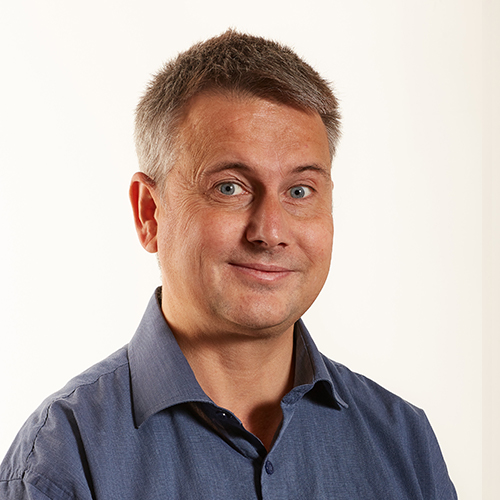Interim director
Graham Symon
Principal Lecturer, Human Resources and Organisational Behaviour
About us: our vision
The Centre for Research on Employment and Work (CREW) provides impactful cross-disciplinary research on the current, future and political economy of work and employment at organisational and workplace level, within wider national and international contexts. Our world-leading researchers focus on work’s integral components - management and labour - as fundamental aspects of business, and businesses and their supply chains. We also recognise the intersectional experience of labour and work in terms of gender, race and ethnicity, migration status and class, and explore the representation and organisation of workers.
We aim to:
- Challenge the invisibility of labour, highlighting its integral contribution towards identity, integration, social relationships, public services and productivity.
- Ensure an intersectional approach to the study of work and management, accounting for gender, race and ethnicity, migration status and class.
- Explore the representation and organisation of workers in organisations and the economy and society
- Draw together established and emerging research groups, to maximise the quality, impact and profile of our research and knowledge exchange
- Focus strategically on cross-cutting themes, and the promotion of critical and innovative research, enhancing theory and methodologies.
- Foster a vibrant research community integrating doctoral students and early career research students into the work of CREW, and making mentoring a priority.
- Support writing groups and retreats, aiming for significantly enhanced collaboration on research funding bids, including partnerships with those conducting similar research elsewhere in the UK and around the world.
Our impact on the world
The world faces multiple environmental, political and social challenges, all of which have implications for the future of work. In the UK we are witnessing serial economic crises, in-work poverty and a wave of industrial action, set against a backdrop of the long-term erosion of pay and living standards and low productivity. Attempts to transition towards a carbon-neutral future, alongside fast emerging AI, robotics and other new technologies have profound implications for the future of work and long-term economic organisation and models of economic growth. The research undertaken at CREW directly addresses these urgent challenges, emphasizing the critical importance of labour during a time of rapid change, and working to ensure that costs and benefits of technological transformations are distributed more equally across society.
CREW contributes to many of the UN Sustainable Development Goals (SDGs). Examples include:
- A recent project for the Scottish Government on re-evaluating the value of women’s work, as part of the ‘Fair Work’ agenda, which supports Gender Equality (SDG5).
- Our examination of how the Covid-19 pandemic impacted on frontline workers in terms of racial equity, which supports Decent Work and Economic Growth (SDG8) and Reducing Inequalities (SDG10), as does our work on in-work poverty, income and pay distribution, and gender and ethnic pay gaps.
- Work by the Public Services International Research Unit (PSIRU), a part of CREW, addresses environmental crisis in terms of the ownership of utilities, the circular economy, management of waste and carbon emissions, which informs European policies on sustainability and supports both Responsible Consumption and Production (SDG12), and Climate Action (SDG13).
Who we are
An interdisciplinary approach
The membership of the Centre for Research on Employment and Work includes HRM specialists, organisational behaviour, labour geographers, work sociologists, and labour economists. Our areas of expertise cover a wide spectrum of employment-related topics, such as health and safety at work, pay and terms and conditions at work, health and social care, welfare-to-work, employability, whistleblowing, representation at work, trade union renewal, dispute resolution, equality at work, and many others. This interdisciplinary approach allows us to evoke broader horizons, informing our research with different perspectives. Regardless of background, all our researchers are deeply committed to supporting decent and equitable work, defined as respecting labour rights and representation, dignity at work, control and autonomy over work, decent pay and other social protections.
Partners
CREW members collaborate and exchange knowledge with a broad array of external partners at national and international level. These include local authorities, trade unions, the Metropolitan Police Service, the European Trade Union Confederation, the Equality and Human Rights Commission, the Low Pay Commission and the Scottish Government. Among our external academic partners are the Universities of Sheffield, Strathclyde, Hull and Washington University in St. Louis, New South Hampshire, University of Southern Maine and other research institutions in the UK and around the world.
Funding
The Centre for Research on Employment and Work is supported by, among others, the Economic and Social Research Council (ESRC), the British Academy, the Leverhulme Trust, European Union Social Dialogue, Independent Social Research Foundation (ISRF), the Foundation of Europe, the Society for Research in Higher Education, the Equality and Human Rights Commission, the Scottish Government, the Public Services International
European Public Services Union, the Rosa Luxemburg Institute, the International Transport Federation, the Trades Union Congress and the Hans Böckler Foundation.
Our research
A multi-methods approach
CREW members believe in methodological and theoretical pluralism, deploying primary and secondary data, alongside mixed methods approaches. Prioritising a bottom-up approach, we use case studies, qualitative research based on semi-structured interviews, focus groups, biographical narrative interpretative methods, content analysis, discourse analysis, critical incident analysis, diary methods, action research, ethnography and statistical and econometric methods.
The Centre for Research on Employment and Work is formed from the federation of three cross-cutting research groups:
- Public Services International Research Unit (PSIRU)
- Diversity Interest Group (DIG)
- Management Inquiry Group (MIG)
Public Services International Research Unit (PSIRU)
Based in the University of Greenwich Business Faculty, the Public Services International Research Unit (PSIRU) was established in 2000 by agreement between Public Services International and the University of Greenwich. PSIRU carries out research on the social, economic and political aspects of privatisation and liberalisation on public services, such as energy, waste management, health care and social care. It also looks at the role and structure of public services and public finance globally.
Recent PSIRU work includes research on water utilities, which demonstrates that privatisation has not led to a more effective or efficient provision of water services, and indeed can result in a deterioration in quality. The findings have informed decisions made by public authorities in five countries on matters related to the public and private ownership and management of urban water services, and commitment to improve service delivery including in Paris, Berlin, Pittsburgh, Valladolid, Spain; and a court ruling on the validity of two private water concessions in Jakarta, Indonesia.
Diversity Interest Group (DIG)
The Diversity Interest Group (DIG) is a unique collaboration of academics focused on researching and understanding equality, diversity and intersectionality in the workplace, covering age, race, sex, disability, sexual orientation, pregnancy and maternity, religion or belief, gender reassignment, marriage or civil partnership. DIG is a cross-University space, encouraging collaboration, interdisciplinary research and the cross-fertilisation of ideas. This vibrant and active research group also engages with wider stakeholders across industry and academia.
Recent work by DIG members include a project, funded by the British Academy and Leverhulme Trust, on employment tribunal judgements - in particular, claims where whistleblowing was made in combination with discrimination. Along with academic publications, important outputs from the research were lay reports made in collaboration with industry partners such as the Equality and Employment Law Centre. These reports were cited in the Financial Times, Personnel Today and other high profile media outlets. Another piece of DIG work, supported by the Higher Education Innovation Fund, is examining disability hate crime. This knowledge exchange project with Metropolitan Police Service analysed how police identified and recorded disability hate crime in six London boroughs. The research has now been extended across 32 London boroughs.
Management Inquiry Group (MIG)
The Management Inquiry Group (MIG) is a new research group for management of research and practice. Established to promote knowledge exchange and consultancy within the context of leadership and organisational behaviour, MIG is a community of academics and practitioners committed to making a difference in the world. Our activities include seminars for faculty members and students to present work-in-progress; workshops, where invited speakers communicate and discuss their research or managerial practices; and conferences on topics consistent with the interests of MIG. We have established connections with relevant national and international networks, host visiting scholars whose research and expertise align with ours, and conduct joint projects with stakeholders, including employers, consultancy groups, alumni and aligned partners.
Recent work by MIG includes research, conducted in Trinadad and Tobago, on the psychosocial experiences and career boundaries of university STEM graduates who are underemployed. The British Academy and Leverhulme Trust funded similar follow up work with participants in the UK. Another project, funded by National Natural Science Foundation, looked at the intricate interplay of culture and ‘job autonomy’, a novel concept that distinguishes between ‘goal’ autonomy and ‘execution’ autonomy. The findings of this study, conducted in the United Kingdom and China, appear in the Journal of Occupational and Organizational Psychology.
Publications/Output
Researchers at the Centre for Research on Employment and Work publish many peer-reviewed academic outputs, as well as research reports based on consultancy and knowledge exchange projects. The latter have included recent key PSIRU publications on energy liberalisation, remunicipalisation and the circular economy, which have been accompanied with presentations at the EU Parliament and garnered wide media attention.
Teaching and training
CREW members participate in the teaching work of the Business Faculty, and also run workshops to support the career development of junior researchers, including methods workshops for doctoral students, on topics such as critical realism. In addition, we provide some external training, such as a recent course for the Nigerian maritime sector on tripartite bargaining for employers, government officials and trade unions. We have also trained local authorities and the police on equality and diversity issues.
News and events
The Centre for Research on Employment and Work, and its constituent research groups (PSIRU, DIG and MIG), run a diverse range of seminars, conferences, workshops and other events providing forums for knowledge exchange with a synthesis of research and practitioner expertise.
Recent activities include:
- Our annual seminar on public sector pay, with speakers from the Office of Manpower Economics, Incomes Data Research, the Resolution Foundation, UNSON and the First Division Association.
- An unconference with the Chartered Institute of Personnel and Development (CIPD) for students and practitioners on current state of research management. (An unconference is an open event where the agenda is set on the day by the attendees)
- A high-profile international conference, hosted jointly between PSIRU and University College London, on public service narratives.
- A seminar entitled ‘Do Black Lives Matter in the Workplace?’, and others on the future of uniformed services; extreme work; the 75th anniversary of Windrush; and public sector pay, workforce planning and austerity.
Our members are regularly invited to attend and speak at trade union and civil society conferences, in many countries. PSIRU members have presented their work at the World Bank, United Nations, the European Commission, the European Parliament, the International Labour Organization (ILO), the World Health Organization (WHO), the UN Commission on Trade and Development (UNCTAD), the Organisation for Economic Cooperation and Development (OECD).
CREW research appears widely in the media. For instance, PSIRU’s work on waste was featured on a Channel 4 ‘Dispatches’ programme. Professor Sian Moore, the CREW Centre Leader, has appeared on BBC2’s ‘Newsnight’ and BBC Radio 4’s ‘The Bottom Line’, and has been quoted in Le Monde and the New York Times on the current UK strike wave, in addition to interviews on LBC, the Finnish national broadcaster, and the Voice of Islam. CREW research on whistleblowing was covered in the Financial Times. Our high profile research, which has been debated in the UK Parliament, for instance, in relation to potential legislative reform, is likely to lead to significant beneficial impact.
Interim Director
Experts
Iqra Abdullah
Lecturer in Human Resources & Organisational Behaviour
Dr Ratnesvary Alahakone
Senior Lecturer in Human Resources and Organisational Behaviour
Dr Ruth Ballardie
Senior Lecturer in Human Resources and Organisational Behaviour
Dr Shreyashi Chakraborty
Lecturer in Human Resources and Organisational Behaviour
Professor Susan Corby
Emeritus Professor
Dr Colin Coulson-Thomas
Lecturer in Human Resources & Organisational Behaviour
Dr Nicoletta Dimitrova
Senior Lecturer in Human Resources and Organisational Behaviour
Dr Myrtle Emmanuel
Senior Lecturer in HRM & Organisational Behaviour; EDI Race Advisor to the Vice Chancellor
Ms Catherine Farrant
Senior Teaching Fellow, Programme Leader, BAHRM, Year 1 Programme Lead BABM
Dr Andrew Hansen-Addy
Senior Lecturer in Business Management
Dr Leroi Henry
Senior Lecturer in Human Resources and Organisational Behaviour
Jane Lethbridge
Associate Professor
Dr Kenisha Linton
Associate Professor of Management (Teaching and Scholarship)
Dr Emanuele Lobina
Associate Professor, Public Services International Research Unit (PSIRU)
Dr Jing Luo
Senior Lecturer in Human Resources and Organisational Behaviour
Dr Joanna Molyn
Senior Lecturer
Dr Neela Mühlemann
Senior Lecturer in Human Resources and Organisational Behaviour
Dr Elisa Pannini
Postgraduate Research Programme Leader (MGM) and Lecturer in Human Resource Management.
Dr Sterling Rauseo
Senior Lecturer in Human Resources and Organisational Behaviour
Bernadette Ryan
Principal Lecturer in Human Resources and Organisational Behaviour; Programme Leader, BA Hons Business Management
Dr Alexandra Stroleny
Senior Lecturer
Dr Graham Symon
Principal Lecturer, Human Resources and Organisational Behaviour
Dr Scott Tindal
Senior Lecturer in Human Resources & Organisational Behaviour
Dr Han-Huei (Crystal) Tsay
Deputy Head of Executive Business Centre
Chryssi Tzanetou
Teaching Fellow in Business Management
Dr Vera Weghmann
Director of Public Services International Research Unit
Dr Laura William
Associate Professor of Employment Relations and Equality, Director of Diversity Interest Group, Co-Director of Centre for Research in Employment and Work
PhD Students
Ibi Akinkuade
PhD Student
Farhana Alam
PhD candidate
Melody Chigogo
PhD Student
Jayne Cunningham
PhD candidate
Ms Emem Ekanem
PhD Candidate
Catherine Emeordi-Okeke
Post Graduate Researcher
Nada Hanafi
PhD Candidate
Rajnigandha Kumar
Post Graduate Research Teaching Assistant
Stella Seidu
Postgraduate Research Teaching Assistant
Minh Van
Postgraduate Research Teaching Associate
Our research
We all have the power to make a positive difference no matter how small the action

Public Services International Research Unit
Research on social, economic and political aspects of privatisation and liberalisation in water, energy, waste management, health care and social care.

Diversity Interest Group
A space for collaboration, cross-fertilisation of ideas and germination of new ideas to research and improve our understanding of equality and diversity in the workplace.

Management Inquiry Group
MIG is a research group for management research and practice. We are a community of academics and practitioners who are committed to making a difference in the world.


































